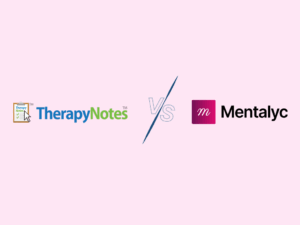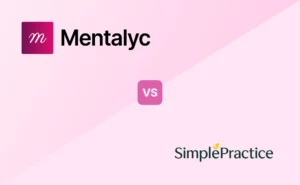In our fast-paced world, it’s not uncommon for people to grapple with stress and navigate the twists and turns of life’s unpredictable changes. However, there’s a point where these challenges can evolve into something more enduring and overwhelming. This is where Adjustment Disorder comes into play – a condition characterized by significant distress that persists for more than just a fleeting moment after a stressful event. This prolonged reaction to stress can disrupt the rhythm of our daily lives, making it difficult to concentrate on tasks like studying or working, and even dampening our overall enjoyment of life.
Setting the Stage: What Are We Talking About?
Adjustment Disorder, often referred to as situational depression, represents an exaggerated response to life’s stressors. This response goes beyond the typical reactions one might expect and can result in significant disruptions in social, occupational, or academic aspects of life.
The stressors that trigger an adjustment disorder can take various forms, from a single, isolated event such as losing a job, to a series of interconnected problems like financial troubles leading to romantic setbacks. Even common life milestones, like becoming a parent, can become stressors aggravating this condition.
Let’s elaborate: the loss of a loved one, for example, can be a notable precipitating factor for an adjustment disorder, but it’s important for clinicians to consider the wide range of culturally diverse grief reactions. A diagnosis of an adjustment disorder should only be made if the response to bereavement exceeds what is typically expected or cannot be better characterized as prolonged grief disorder.

New! Transfer your notes to EHR with a single click. No more copy-pasting.
How Prevalent Is Adjustment Disorder?
Adjustment disorder is estimated to impact approximately 2 to 8% of the overall population, potentially affecting individuals across all age groups. Interestingly, it displays a higher occurrence among females, affecting twice as many women as men.
Can Adjustment Disorder Impact Children?
Indeed, adjustment disorders can affect individuals of all ages, including adults and children.
Adjustment Disorder: DSM-5 Diagnostic Criteria
Criterion A The emergence of emotional or behavioral symptoms in reaction to identifiable stressors, all occurring within a span of three months from the onset of these stressors.
Criterion B These symptoms or behaviors exhibit clinical significance, as demonstrated by one or both of the following criteria:
- Notable distress that is out of proportion in relation to the stressor.
- Significant impairment in one’s social, professional, or other essential areas of life functioning.
Criterion C The stress-related disturbance does not align with the diagnostic criteria of any other mental disorder and is not merely an exacerbation of an existing mental disorder.
Criterion D The symptoms do not reflect normal grieving.
Criterion E Once the stressor or its repercussions have subsided, the symptoms do not persist for more than six months.
Specifiers: Adjustment Disorder With…
- With depressed mood: Predominant symptoms include persistently low mood, tearfulness, or feelings of hopelessness.
- With anxiety: Predominant symptoms involve nervousness, excessive worry, jitteriness, or separation anxiety.
- With mixed anxiety and depressed mood: A combination of depression and anxiety predominates.
- With disturbance of conduct: Predominant symptoms are characterized by a disturbance of conduct.
- With mixed disturbance of emotions and conduct: Both emotional symptoms(e.g., depression, anxiety) and disturbance of conduct are predominant.
- Unspecified: For maladaptive symptoms that do not fit into any of the specific subtypes of adjustment disorder.
From Underlying Causes to Symptoms and Manifestations
What factors might contribute to the development of adjustment disorder? You might be pondering. Well, adjustment disorders can stem from situations perceived as stress-inducing and disruptive to one’s occupational, social, or domestic life. From years of experience, I’ve encountered such examples:
- The loss of a family member or a close friend.
- Relationship complications, such as breakups, marital discord, or divorce.
- Significant life events like marriage or the birth of a child.
- Severe health challenges.
- Academic difficulties.
- Financial hardships.
- Workplace-related issues, including job loss or unattained goals.
- Residing in a neighborhood marked by high crime rates.
- Retirement.
- Experiencing a disaster or unforeseen catastrophe.
Furthermore, individual factors, such as one’s personality, temperament, past life experiences, and family history, are believed to exert some kind of influence contributing to the development of adjustment disorder.
Now, when it comes to symptoms, one cannot but highlight only some of the myriad of physical, behavioral, and emotional manifestations:
- Persistent fatigue coupled with insomnia.
- Bodily discomfort and a perception of illness.
- Frequent headaches or abdominal pain.
- Palpitations.
- Excessive sweating of the hands.
- Engagement in rebellious, destructive, impulsive, or reckless behaviors.
- Feelings of anxiety, agitation, hopelessness, or entrapment.
- Frequent bouts of crying.
- Difficulty concentrating.
- Withdrawal from social interactions, feelings of sadness, diminished energy or enthusiasm, and a decline in self-esteem.
- Loss of interest in everyday activities.
- Altered eating patterns.
- Overwhelming stress and feelings of being inundated.
- Substance abuse, including alcohol or drug misuse.
- Suicidal thoughts and/or attempts.
Management and Intervention
The management of an adjustment disorder may not always necessitate specific clinical intervention. With the support of family, friends, or a counselor, symptoms can naturally improve over a few months.
Watch out! If symptoms, however, prove to be significantly distressing and incapacitating, a combination of the following may be of help:
Psychological Support
A commonly employed psychotherapeutic method involves assisting individuals in identifying and challenging detrimental thoughts and beliefs contributing to their emotional state. Thanks to such interventions, individuals learn valuable skills for coping with stressors and managing anger or stress.
Family/Peer Support
In some cases, it may be beneficial for friends or other family members to engage in therapy to address any life or family-related issues that might be affecting the individual’s ability to cope with their circumstances.
Medication Consideration
Typically, physicians do not prescribe medications to treat adjustment disorders in children or adults. However, in specific situations, certain medications may be prescribed on a short-term basis by licensed practitioners.
Is It Possible to Proactively Prevent Adjustment Disorders?
While we may not have direct control over external circumstances, there exist proactive measures to enhance our ability to cope and survive when confronted with stressors. Encourage your clients to consider the following:
Work on your support network:
Foster connections with family, friends, and community groups if you think those might be a source of encouragement and emotional support during challenging times.
Prioritize self-care:
Allocate time for self-care. Whether it’s indulging in a soothing bath, immersing yourself in a good book, maintaining a journal, strolling in nature, or spending quality moments with a pet, dedicate time to cherish yourself! Establish a routine for regular “me time” to bring joy to your spirit.
A Recurrent Question From Patients
What should I anticipate upon receiving a diagnosis of adjustment disorder? Well, one piece of advice that I always offer to my patients is that adjustment disorder typically resolves on its own as the triggering stressor diminishes or as individuals adapt to their circumstances. Medical interventions are typically limited in scope, and once the situation improves, so do the associated symptoms.
Documenting For DSM-5
There are now tools that can assist you in managing and documenting cases of Adjustment Disorder by streamlining the note-taking process, ensuring that therapists meet the DSM-5 criteria for diagnosis, and enhancing the overall quality and accuracy of clinical documentation. Explore it here.
References:
- American Psychiatric Association. (2013).Diagnostic and Statistical Manual of Mental Disorders, Fifth Edition (DSM-5).
Why other mental health professionals love Mentalyc

“By the end of the day, usually by the end of the session, I have my documentation done. I have a thorough, comprehensive note … It’s just saving me hours every week.”
CDCII

“It’s so quick and easy to do notes now … I used to stay late two hours to finish my notes. Now it’s a breeze.”
Licensed Professional Counselor

“It takes me less than 5 minutes to complete notes … it’s a huge time saver, a huge stress reliever.”
Licensed Marriage and Family Therapist

“Having Mentalyc take away some of the work from me has allowed me to be more present when I’m in session with clients … it took a lot of pressure off.”
LPC






